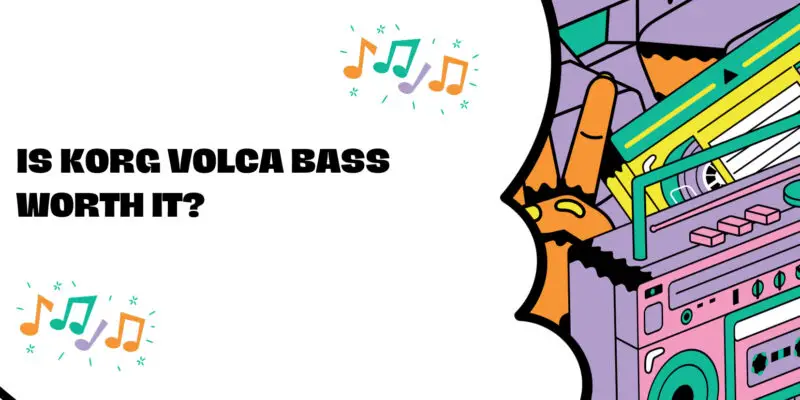The Korg Volca Bass is a compact analog synthesizer designed to deliver powerful and punchy basslines, making it an enticing choice for electronic music producers and musicians. But is the Volca Bass worth the investment? In this article, we’ll provide a comprehensive review of the Korg Volca Bass to help you determine whether it’s the right addition to your music production arsenal.
Key Features of the Korg Volca Bass
Before diving into whether the Volca Bass is worth it, let’s explore some of its key features:
- Analog Sound Engine: The Volca Bass is an all-analog synthesizer, which means it generates its sounds using analog electronic components. This analog architecture gives it a warm and rich sound character, particularly suited for basslines.
- Three Oscillators: One of the standout features of the Volca Bass is its three oscillators, which can be used in unison to create thick and powerful bass sounds. Each oscillator offers a selectable waveform (sawtooth or square), and you can detune them to create fat and detuned basslines.
- Filter and Envelopes: It includes a resonant low-pass filter and envelope generators for shaping the tone and dynamics of your bass sounds. The filter can be modulated for expressive sweeps and filtering effects.
- 16-Step Sequencer: Like other Volca models, the Volca Bass features a built-in 16-step sequencer that allows you to program and automate bassline patterns. It supports parameter automation, making it ideal for evolving and dynamic sequences.
- MIDI Input: The Volca Bass includes MIDI input, enabling you to integrate it into a larger MIDI setup or control it externally.
Is the Korg Volca Bass Worth It?
Now, let’s evaluate whether the Korg Volca Bass is worth the investment by considering its strengths and potential limitations:
Pros:
- Analog Warmth: The Volca Bass delivers the classic analog warmth and punch that’s essential for basslines. It excels at creating powerful and characterful low-end sounds.
- Versatile Oscillators: The three oscillators with detuning options provide versatility in sound design, allowing you to create a wide range of bass textures, from deep and subby to gritty and edgy.
- Compact and Portable: The Volca Bass’s compact form factor and battery-powered operation make it highly portable, suitable for live performances and on-the-go music production.
- Affordability: Compared to many analog synthesizers, the Volca Bass is relatively affordable, making it an accessible entry point into analog synthesis.
Cons:
- Monophonic: The Volca Bass is a monophonic synthesizer, which means it can only play one note at a time. If you require polyphony for chords and harmonies, you may need additional gear.
- Limited Sound Palette: While it excels at bass sounds, the Volca Bass is primarily designed for basslines. If you’re looking for a more versatile synthesizer capable of a broader range of sounds, you might want to consider other options.
Conclusion
The decision to invest in the Korg Volca Bass depends on your musical goals and preferences. If you’re a fan of analog bass sounds and want a portable and affordable synthesizer dedicated to crafting powerful basslines, the Volca Bass is an excellent choice. Its analog architecture, three oscillators, and built-in sequencer provide a creative platform for bass-focused music production.
However, if you require polyphony or a broader sonic palette for your music, you may want to explore other synthesizers with more diverse sound capabilities. Ultimately, the Korg Volca Bass offers exceptional value for bass enthusiasts and electronic music producers looking to add analog warmth and depth to their tracks.


